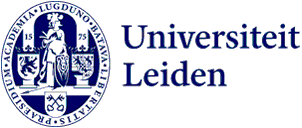
Nitrogen experts suggest switching from deposition to emission policy
In an essay Professors Jan Willem Erisman (Leiden University), Chris Backes (Utrecht University) and Wim de Vries (Wageningen University) suggest amending nitrogen policy in the Netherlands. They call for a shift from a deposition to an emissions policy, with sectors responsible for reducing their own nitrogen emissions.
Nitrogen policy has caused a lot of discussion and tension in Dutch politics and society in recent years. A clear long-term vision is lacking. Nitrogen deposition has barely decreased at all for years and the permit process is laborious, causing economic harm. Nor can societal goals such as housing and sustainable energy projects be realised.
The experts believe there is no viable alternative to the critical deposition value (CDV) for determining the effects of nitrogen emissions on nature. The CDV is the amount of nitrogen deposited in a certain natural reserve beyond which effects can occur. The Dutch Nature Conservation Act (Wet Natuurbescherming) states that by 2035 the CDV may not be exceeded in 74% of the Natura 2000 areas. In the essay (in Dutch), the experts indicate that the Nature Conservation Act does not need to be amended but that it must be made clearer that this goal is binding for the government alone. The sectors can only be expected to contribute to this goal by reducing emissions. The experts therefore suggest steering policy by setting emission targets for ammonia (NH3) and nitrogen oxides (NOx) and making each sector responsible for reducing its own nitrogen emissions.
Standards for individual companies
To determine company-level standards for the agricultural sector, the authors suggest translating the area standards to individual businesses. Company-level standards should apply not only to ammonia emissions but also to the other goals of the National Rural Areas Programme (Nationaal Programma Landelijk Gebied), namely the soil nitrogen surplus in relation to water quality and greenhouse gas emissions. Permits for new projects should be based on achieved reductions in emissions and offsetting against existing nitrogen emissions in that particular sector. A good monitoring system should ensure that the emissions from sectors and businesses are reduced to a sufficient extent. If a company does not achieve its goal, the permit will be adjusted.
The experts think that the emission approach can help bring the parties negotiating the agriculture agreement (landbouwakkoord) closer together. They also emphasise that the nitrogen issue is a social issue that everyone will have to help resolve. They call for aid for farmers in switching to sustainable farming practices, for instance with attractive loans or social welfare assistance.
